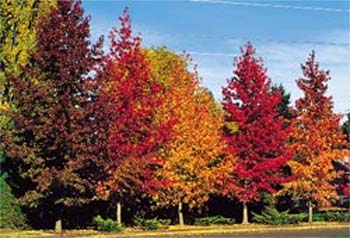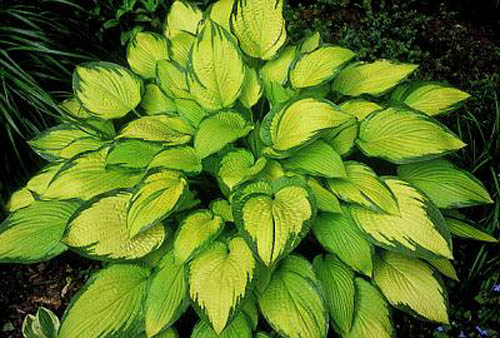Ask any gardener, who grows hostas or other broadleaf plants, for their candidate for one of the most distasteful garden pests and they will say the slug. With our wet Spring weather and humid Summers slugs are a problem in this area.
Slugs are simply snails without shells, we will refer to the two of them interchangeably throughout our discussion. The most common slugs encountered by the home gardener are the grey garden slug, the greenhouse slug, and the banded slug. Slugs and snails lay their eggs in clusters under rocks, mulch, and other garden debris. All slugs require moist wet conditions and in fact will quickly die during extended dry spells. During Winter, snails and slugs hibernate in cracks in the topsoil, under mulch, or leaves and dead plant matter.
Slugs are usually nocturnal, they hide in the mulch during the day, so you rarely see the pests only the damage. They eat irregular holes in all kinds of foliage but love hostas. A sure sign that slugs are present is when a plant’s lower leaves have been chewed or the silvery trails snails leave as they move about.
Slugs feed on a variety of plants as well as ripening fruit and tender bark. They prefer succulent foliage plants or flowers. They can consume several times their own body weight each night. Slugs tend to avoid plants with hairy leaves or those with a milky sap. Some plants like artemisias, astilbe, baby’s breath, columbine, coralbells, coreopsis, dianthus, lupines, peonies, rudbeckia, and sedum are resistant to them.
Snails and slugs do have some natural enemies, including some beetles, toads, turtles, and birds also feed on them. Ducks, geese, or chickens will readily feed on them. Unfortunately, we have found that these also like to dine on young tender plants and berries.
Fortunately, we have not had a problem with slugs and snails even though we grow hundreds of hostas and other succulent plants. Even with all the ground cover we have, slugs are all but non-existent. This was not always the case but, once we began completely cleaning up all Fall garden debris and cut back spent foliage, they just seemed to disappear. All of our compost piles are kept far away from the rest of the garden.
We also use only course wood chips and pine needle mulch, this is renewed yearly before the plants began to leaf out. While we do not raise ducks and chickens, although I would like to, we do entice birds into our gardens with many feeders, birdbaths, and nesting areas. We particularly encourage ground feeding birds such as robins, towhees, blackbirds, and thrushes to feed in the garden.
Slugs can also be controlled by a variety of other means which we have listed in the “Tips Section “. Most of these are time consuming or require the use of chemicals, the former we do not have enough of and the latter we try to avoid. We do not doubt that they work but we suggest that you review your gardening practices first. We have found a clean garden is also a slug free garden.



